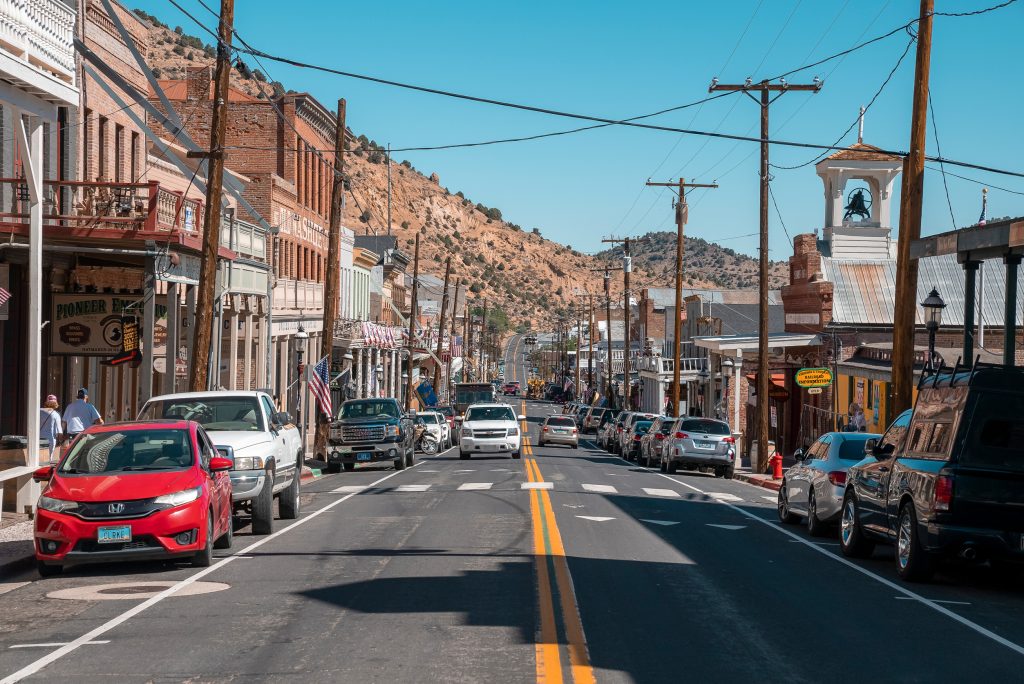
Image Source: 123rf.com
If you’ve scrolled through TikTok or Instagram lately, you’ve probably noticed a growing trend: more and more Gen Z and Millennials are packing up their city apartments and heading for the charm of small-town life. This shift isn’t just about escaping sky-high rents or crowded subways—it’s a lifestyle movement that’s gaining serious momentum. With remote work on the rise and priorities shifting, young adults are rethinking what “success” and “happiness” really mean. For many, the answer lies far from the hustle and bustle of big cities. You’re in the right place if you’re curious about why so many are making this leap. Here are ten compelling reasons why Gen Z and Millennials are trading skyscrapers for small-town skylines—and why you might want to consider it, too.
1. Lower Cost of Living
One of the biggest reasons Gen Z and Millennials are leaving big cities is the dramatically lower cost of living in small towns. Rent, groceries, and even entertainment are often much more affordable, allowing young people to save money or invest in experiences that matter to them. According to CNBC, many Americans are moving to smaller communities to escape the financial pressures of urban life. This financial freedom can mean less stress and more opportunities to build wealth or pursue passions.
2. Remote Work Flexibility
The rise of remote work has been a game-changer, especially for Gen Z and Millennials. No longer tied to a physical office, many are choosing to live where they feel happiest, not just where the jobs are. Small towns offer the perfect blend of peace and productivity, with fewer distractions and more space to create a comfortable home office. This flexibility is empowering a new generation to prioritize lifestyle over location.
3. Better Work-Life Balance
Big cities are notorious for their fast pace and long commutes, which can quickly lead to burnout. In contrast, small-town life often means shorter commutes, less traffic, and more time for hobbies, family, and self-care. This improved work-life balance is a major draw for young adults who value mental health and personal fulfillment as much as career success.
4. Stronger Sense of Community
It’s easy to feel anonymous in a big city, but small towns are known for their tight-knit communities. Gen Z and Millennials are seeking genuine connections and a sense of belonging, which small towns often provide in abundance. Whether it’s chatting with neighbors at the local coffee shop or volunteering at community events, these interactions foster meaningful relationships and a support network that’s hard to find in urban environments.
5. Access to Nature and Outdoor Activities
Access to green spaces and outdoor adventures is a top priority for many young people. Small towns often offer beautiful parks, hiking trails, and lakes right outside your door. This proximity to nature supports physical health and boosts mental well-being. According to the American Psychological Association, spending time in nature can reduce stress and improve mood—something city dwellers often miss out on.
6. Slower Pace and Less Stress
The constant noise and rush of city life can be overwhelming. Small towns offer a slower, more relaxed pace that appeals to those looking to escape the chaos. This slower lifestyle allows for more mindful living, less stress, and a greater appreciation for the little things, like a quiet morning walk or a friendly wave from a neighbor.
7. Opportunities for Entrepreneurship
Believe it or not, small towns can be fertile ground for new businesses. With less competition and lower startup costs, Gen Z and Millennials are finding it easier to launch side hustles or full-fledged companies. Many small towns actively support local entrepreneurs through grants, networking events, and business incubators, making it an attractive option for those with big dreams and creative ideas.
8. Safer, Family-Friendly Environments
Safety is a top concern for many young adults, especially those thinking about starting families. Small towns often boast lower crime rates and a more family-friendly atmosphere than big cities. This peace of mind allows residents to focus on building their futures without constant worry, making small-town life especially appealing for those planning to settle down.
9. More Affordable Homeownership
For many Millennials and Gen Zers, owning a home in a big city feels out of reach. In small towns, however, homeownership is much more attainable. Lower property prices and less competition mean that buying a house—and building equity—is a realistic goal. This financial stability is a key reason why so many are moving.
10. Authentic Local Culture
Small towns are rich in local traditions, festivals, and unique businesses, giving each community its flavor. Gen Z and Millennials are increasingly drawn to these authentic experiences, preferring them over the chain stores and generic attractions of big cities. Embracing local culture supports small businesses and creates a deeper sense of place and identity.
Rethinking the American Dream: Why Small-Town Life Is the New Big City
The migration of Gen Z and Millennials to small towns isn’t just a passing trend—it’s a reimagining of what the American Dream can look like. With the primary SEO keyword “small-town life” at the heart of this movement, young adults are discovering that happiness, success, and fulfillment don’t require a city skyline. Instead, small-town life offers affordability, community, and a chance to live on your own terms. Whether you’re craving a slower pace, dreaming of homeownership, or simply seeking a stronger sense of belonging, small-town life might just be the fresh start you’ve been searching for.
What about you? Are you considering a move to small-town life, or have you already made the leap? Share your story or thoughts in the comments below!
Read More
9 Cities Where Millennials Are Moving and Why
10 Happenings That Suggest White Flight Is Happening in Your Town

Travis Campbell is a digital marketer/developer with over 10 years of experience and a writer for over 6 years. He holds a degree in E-commerce and likes to share life advice he’s learned over the years. Travis loves spending time on the golf course or at the gym when he’s not working.



























































